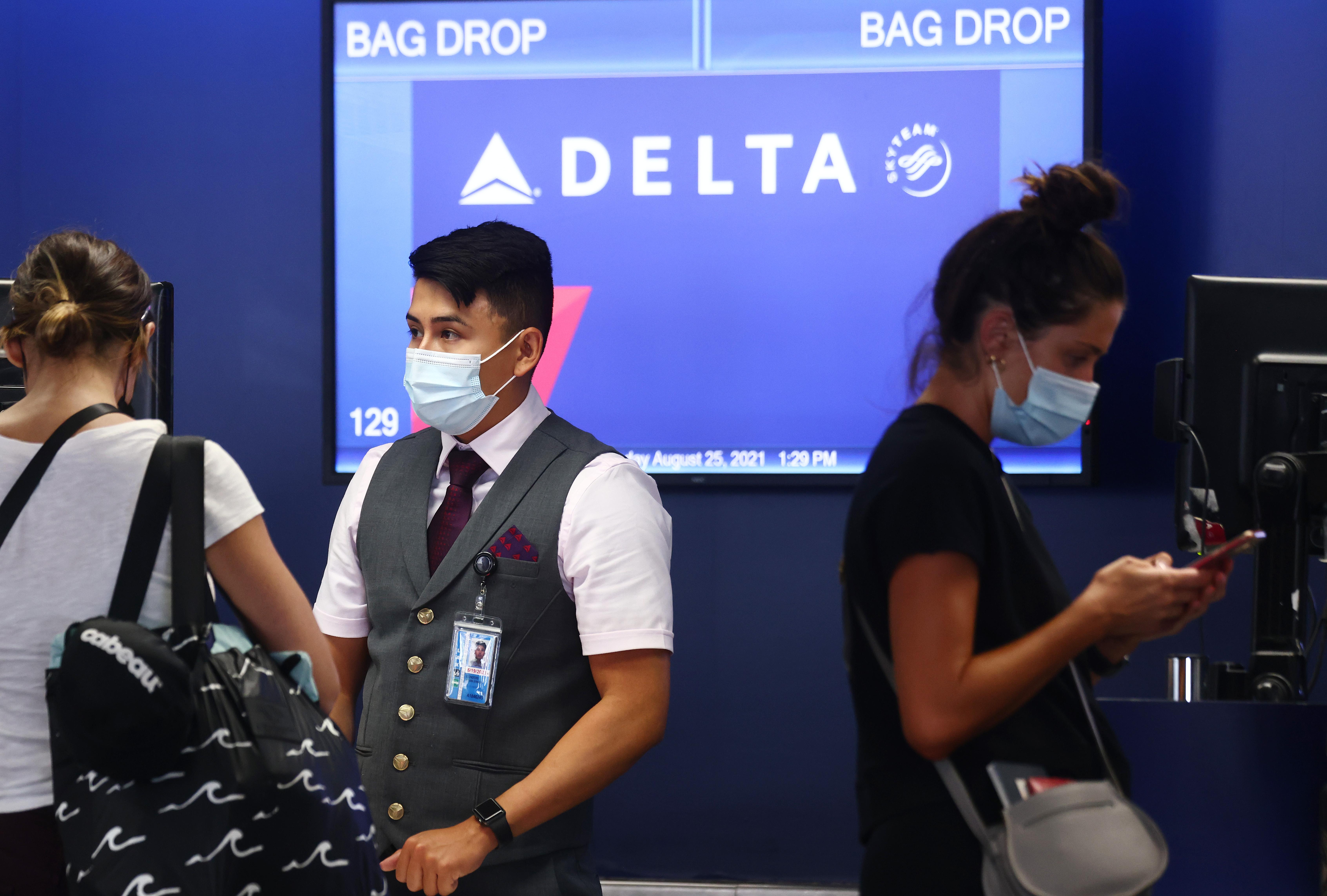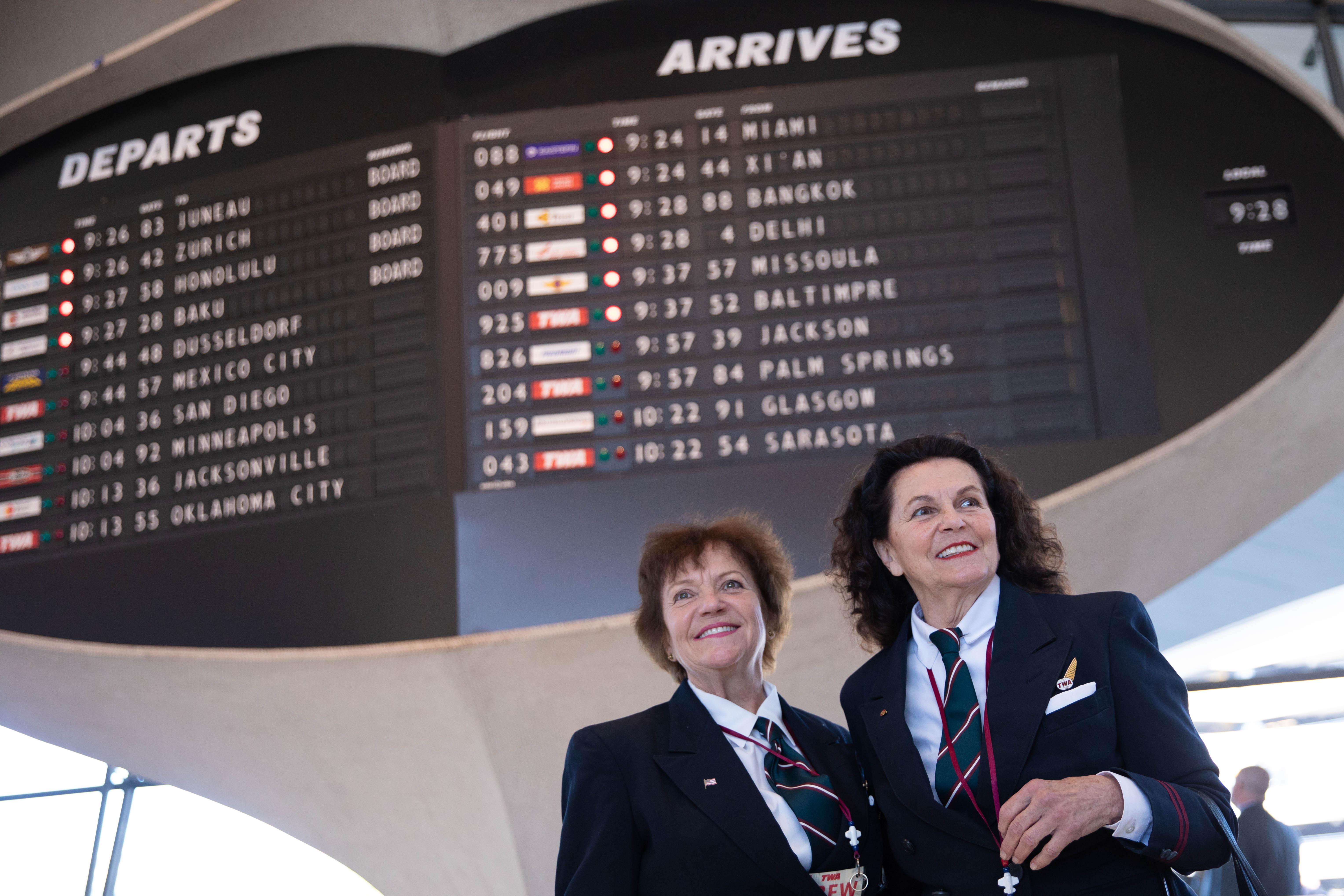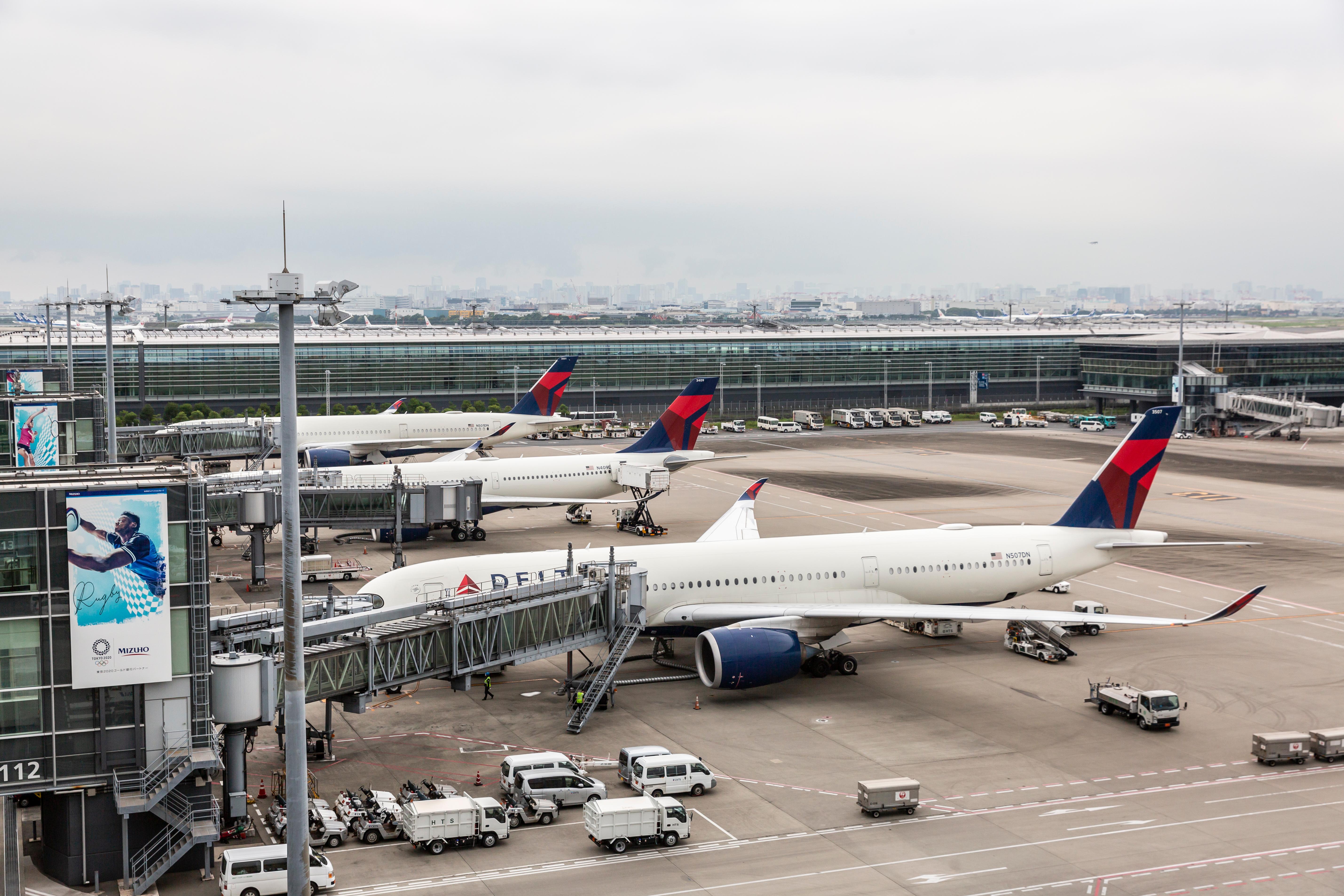How Much Do Flight Attendants Really Make? Your 2025 Pay Guide
Have you ever looked up at the sky, watching a plane soar, and wondered about the people who make those journeys possible? That, is to say, the flight attendants? It's a job that seems glamorous, perhaps, with travel and new experiences, but a really common question many people ask themselves is just how much do flight attendants make. People are naturally curious, you know, about the financial side of such an interesting career.
This question, about the money, comes up a lot for folks thinking about a new path or even just for those who are simply interested in different kinds of work. There's a lot to unpack when we talk about a flight attendant's earnings, because it's not always a straightforward number. So, we're going to try and get into the specifics, drawing from recent information, to give you a clearer picture of what this job might pay.
It's pretty important, arguably, to have a good grasp of the financial aspects of any job, and being a flight attendant is no exception. Our guide here, which is more or less a look ahead to 2025, aims to break down the salary figures, talk about benefits, and even give you some ideas on how you could possibly boost those earnings. So, let's explore this together, shall we, and find out more about what a flight attendant truly earns.
Table of Contents
- Understanding the Average Flight Attendant Salary
- What Factors Influence Flight Attendant Pay?
- Airline Differences and Where You Could Earn the Most
- Benefits and Other Perks of the Job
- Tips to Enhance Your Flight Attendant Earnings
- Frequently Asked Questions About Flight Attendant Pay
Understanding the Average Flight Attendant Salary
When you start to look into how much do flight attendants make, you'll quickly see that there isn't just one simple number. The figures can actually vary quite a bit, depending on where you look and what data is being shared. For example, in 2023, flight attendants had a median salary of $68,370. That's a good starting point, you know, giving us a mid-range idea of what many people in this line of work were bringing home.
Then, there are other reported averages, which can sometimes paint a slightly different picture. One piece of information tells us that the average annual salary for a flight attendant in the United States is around $76,973, which breaks down to about $37 per hour. This figure, it's pretty interesting, also suggests a range from about $60,037 up to $107,361 a year, or from $29 to $52 per hour. That's a rather wide spectrum, so it really highlights the differences you might encounter.
It gets a little more complex, too, because other sources provide different averages. Some data indicates that the average flight attendant salary in the United States could be around $33,607, with typical earnings falling between $25,000 and $43,000 annually. Yet another report, according to the Bureau of Labor Statistics, puts the average salary for flight attendants at approximately $56,000 per year. So, as you can see, there's quite a bit of variation in these numbers, and that's something to keep in mind when you're trying to figure out how much do flight attendants make.
- Show It To Me Rachel
- Stroke It In Spanish
- Victoria Secret Credit Card
- French Pole Vaulter Video
- Short Cut Style For Women
Another look at the numbers shows the average flight attendant's salary in the U.S. is about $68,370 per year, or around $29.06 per hour. This figure, it seems, aligns more closely with the median salary we mentioned earlier. The different reported averages just go to show that many things can influence these statistics, and it's not always a single, fixed amount you can expect. It truly is a dynamic field, financially speaking, with various factors playing a part in what someone actually earns.
What Factors Influence Flight Attendant Pay?
So, you might be asking yourself, what exactly causes all these different salary numbers? It's not just random, you know. A flight attendant’s monthly salary, or their annual earnings for that matter, will vary quite a lot, and this is because several key elements come into play. It really depends on things like how long someone has been with an airline, the amount of time they spend flying, and any extra payments they get. These things, arguably, shape the overall pay package.
Understanding these elements is pretty important if you want to get a real sense of how much do flight attendants make. It's not just about the base pay; there are layers to it. We're going to look a bit closer at these specific factors that make a difference in what a flight attendant takes home. It's almost like a recipe, where each ingredient adds to the final flavor of their compensation.
Seniority and Experience
One of the biggest factors in a flight attendant's pay, actually, is seniority. This basically means how long you've been working for a particular airline. The longer you've been there, the more seniority you generally accumulate. This isn't just about bragging rights, you know; it directly translates to better pay. Newer flight attendants, for instance, typically start at a lower hourly rate compared to those who have been flying for many years.
Seniority also plays a big role in other aspects of the job, not just the hourly wage. It can affect your schedule, giving you more choice over routes and layovers, and sometimes even which aircraft you work on. This is pretty significant, as better schedules can lead to a better work-life balance. So, in some respects, building up that experience over time really pays off, both in terms of direct earnings and in the quality of your working life.
It's a system that, you know, rewards loyalty and dedication to the airline. As a flight attendant gains more years of service, their pay scale usually increases steadily. This means that while starting salaries might seem a bit modest, the potential for growth is definitely there, and it's something many people consider when they look at this career path. It's a clear path for earning more, in a way, as your career progresses.
Hours Flown and Guaranteed Pay
Another very important aspect that influences how much do flight attendants make is the number of hours they actually fly. Flight attendants are, for the most part, paid for the time they spend in the air, from when the aircraft doors close until they open again at the destination. So, more flying hours usually mean more money in their pocket. This is pretty straightforward, you know.
However, it's not always just about the actual flight time. Many airlines offer a "guaranteed" number of hours each month, even if a flight attendant doesn't quite hit that mark due to scheduling or cancellations. This provides a certain level of income stability, which is rather nice to have in a job that can sometimes be unpredictable. This guaranteed pay, it's a safety net, basically, ensuring a minimum earning each period.
The actual number of hours a flight attendant can fly in a month is, of course, regulated for safety reasons. There are limits to how much they can work. But within those limits, those who are able to pick up extra shifts or longer flights will naturally see their earnings go up. It's a flexible system in some ways, allowing for more income potential if you're willing and able to put in the extra time in the air.
Supplemental Pay and Additional Earnings
Beyond the base hourly rate and guaranteed hours, flight attendants can also receive various forms of supplemental pay. These are extra payments that can really add up and contribute to their overall income. For instance, they might get paid for layover time, or for international trips, which often come with a different pay structure. These little additions, you know, can make a significant difference.
There could also be per diem payments, which are daily allowances to cover expenses like food and incidentals when they're away from their home base. While not strictly "salary," this helps with living costs on the road, meaning less out-of-pocket spending. Some airlines might also offer bonuses for specific assignments, or for working during holidays, so that's another way to boost earnings, actually.
These types of supplemental pay are, in a way, perks that sweeten the deal and contribute to the total compensation package. They are an important part of understanding how much do flight attendants make, because they're not always factored into the simple "hourly wage" figure. It's really about looking at the whole picture of what someone receives for their work, including all these various components.
Airline Differences and Where You Could Earn the Most
It's pretty clear that a flight attendant’s monthly salary will vary greatly at each airline. This is a very significant point when you're considering this career. Not all airlines pay the same, and some are known for offering higher compensation packages than others. So, finding out which airlines pay the most is definitely a key piece of information for anyone looking into this field.
Generally speaking, larger, more established airlines, especially those that fly international routes, tend to offer better pay and benefits compared to smaller regional carriers. This isn't always a hard and fast rule, but it's a common trend. The difference in pay can be quite substantial, so it's worth doing your research on specific airlines if you're hoping to maximize your earnings. It really does make a difference, you know, which company you work for.
The type of contract an airline has with its flight attendants, and the overall financial health of the company, can also play a big part. Some airlines might have stronger unions that negotiate for better wages and working conditions. So, when you're exploring how much do flight attendants make, it's a good idea to look beyond just the job title and consider the specific employer, because that truly can impact your paycheck significantly.
Benefits and Other Perks of the Job
Beyond the actual salary, flight attendants often receive a range of benefits that add considerable value to their overall compensation. These benefits are a very important part of the package, and they're something to think about when you're evaluating how much do flight attendants make. Things like health insurance, dental coverage, and retirement plans are pretty standard in many professional roles, and flight attendants usually have access to these as well.
But then there are the unique perks that come with the job, which are often a big draw for people. The most famous, perhaps, is the travel benefits. Flight attendants, and sometimes their immediate families, can often fly for free or at greatly reduced rates. This is a huge advantage for anyone who loves to travel, allowing them to explore the world in a way that would be very expensive for most others. It's a truly amazing benefit, you know.
These travel opportunities, arguably, are a form of compensation in themselves, even if they don't appear on a paycheck. The ability to visit new places, experience different cultures, and generally see the world is a powerful incentive for many. So, while you're learning about salaries, benefits, and salary satisfaction, it's also about where you could earn the most, not just in cash, but in experiences and lifestyle advantages too. Learn more about flight attendant wages on the Bureau of Labor Statistics site.
Tips to Enhance Your Flight Attendant Earnings
If you're curious about how much do flight attendants make and you're thinking about ways to boost those earnings, there are definitely some strategies you can consider. Our 2025 guide, in a way, breaks down salary, benefits, and also includes tips to enhance your earnings. It's about being smart and strategic with your career choices.
One of the most straightforward ways to earn more is by gaining seniority. As we talked about earlier, the longer you stay with an airline, the higher your hourly rate tends to go. So, sticking with one company for the long haul can really pay off over time. It's a long-term game, you know, but a rewarding one for sure.
Another tip is to be open to working more hours, if your schedule allows and you're up for it. Picking up extra flights, especially on busy routes or during peak travel seasons, can significantly increase your monthly income. Being flexible and available can make a big difference in your take-home pay. You might also want to look into international routes, which sometimes offer higher pay scales. Learn more about flight attendant careers on our site, and link to this page here.
Also, paying attention to those supplemental pay opportunities can be really helpful. Understanding how per diems work, and what other bonuses or special pay might be available for certain assignments, can help you make informed choices about your schedule. It's about making the most of every opportunity to earn. So, with a bit of planning and dedication, you can definitely work towards a higher earning potential in this field.
Frequently Asked Questions About Flight Attendant Pay
Here are some common questions people often ask when they're trying to figure out how much do flight attendants make.
How much can a flight attendant expect to earn annually in the US?
The annual earnings for a flight attendant in the US can really vary. For instance, the median salary in 2023 was $68,370. However, other figures suggest an average annual salary of around $76,973, with a range that could go from about $60,037 to $107,361. Some reports even indicate an average of $33,607, with typical earnings between $25,000 and $43,000. So, it's not just one number, you know, but a pretty broad spectrum depending on many factors.
What factors truly influence a flight attendant's pay?
Several key things truly influence how much a flight attendant earns. Seniority, which is how long they've been with the airline, plays a very big part. The more hours they fly, or the guaranteed hours they have each month, also makes a difference. Additionally, supplemental pay, like per diems or special assignment bonuses, can significantly add to their overall income. It really is a mix of these elements, actually, that shapes their paycheck.
Do flight attendant salaries differ a lot between airlines?
Yes, flight attendant salaries do differ quite a lot between different airlines. A flight attendant’s monthly salary will vary greatly at each airline. Larger, more established carriers, especially those with international routes, often offer higher pay and more comprehensive benefits compared to smaller or regional airlines. So, the specific airline you work for can have a pretty substantial impact on your earning potential, which is something to consider.
- Stroke It In Spanish
- Translate The Correct Sentences From Exercise 2 Into Your Language
- Dr Pepper Creamy Coconut
- Red God Release Date
- Meaning Of Am Pm In Time

How Much Do Flight Attendants Make? Delta Is Hiring Flight Attendants

How Much Do Flight Attendants Make? Delta Is Hiring Flight Attendants

How Much Do Flight Attendants Make? Delta Is Hiring Flight Attendants